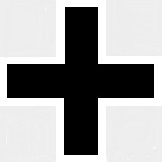Corgi AA38305 German Fokker Dr.1 Triplane Fighter - Lt. Hans Kirschstein, Jasta 6, Cappy, France, April 1918 (1:48 Scale)
"The important thing in aeroplanes is that they shall be speedy."
- Baron Manfred Von Richthofen
 The Fokker Dr.I Dreidecker (triplane) was a World War I fighter aircraft built by the company of Anthony Fokker, and designed by Reinhold Platz. It became most famous as the plane of the Red Baron, Manfred von Richthofen.
The Fokker Dr.I Dreidecker (triplane) was a World War I fighter aircraft built by the company of Anthony Fokker, and designed by Reinhold Platz. It became most famous as the plane of the Red Baron, Manfred von Richthofen.
In April 1917, the Royal Naval Air Service (RNAS) introduced the Sopwith Triplane. Their debut was sensational and they swiftly proved to be superior to the Albatros and Halberstadt scouts then in use by the German Air Service. Soon the German pilots were clamouring for a triplane of their own. The majority of the German aircraft manufacturers, including Pfalz, AEG, DFW, Schutte-Lanz, and Euler, responded with new triplane designs. Most displayed little promise, though limited production of the Pfalz Dr. I was undertaken.
Fokker responded with the V.3, a small rotary-powered triplane with a tubular steel frame fuselage and thick cantilever wings. Fokker found several deficiencies in the V.3, particularly regarding control forces. Instead of submitting the V.3 for a type test, Fokker produced a revised prototype designated V.4. The most notable changes were horn-balanced ailerons and elevators, as well as wings of increased span. The V.4 also featured interplane struts, which were not necessary from a structural standpoint, but which had the effect of minimizing wing flexing. The V.4 proved highly manueverable and much superior to the triplane prototypes submitted by other manufacturers. The rudder and elevator controls were powerful and light. Rapid turns were facilitated by the triplane's directional instability. The ailerons were also light, but not very effective.
After a type test, an immediate production order ensued. The V.4 prototype was intentionally destroyed in static structural tests. The two pre-production examples, designated F.I, were delivered in the middle of August 1917. These were the only machines to receive the F.I designation. Delivery of production machines, designated Dr.I, commenced in October of that year.
Pictured here is a 1:48 scale replica of a German Fokker Dr.1 Triplane Fighter that was piloted by Lt. Hans Kirschstein, who was attached to Jasta 6 during April 1918.
Sold Out!
Dimensions:
Length: 6-inches
Wingspan: 7-1/2-inches
Release Date: March 2014
Historical Account: "Cappy Happy" - Hans Kirschstein was born on 5th August 1896 in the Prussian kingdom of Germany. Hailing from an aristocratic family, his father headed the provincial government. Hans joined the infantry as a combat engineer in 1914. Contracting Malaria in 1915 he returned to active duty in December of that year. In February 1916 he applied for a move to aviation. He was accepted and began his flying career as a bomber pilot before receiving fighter training and was assigned to a Prussian squadron, Jagdstaffel 6 on March 13th, 1918, where he would go on to become the squadron's leading ace.
Scoring his first victory on March,18th by the end of May he was a triple ace with 15 victories. He would go on to score 27 victories with his final kill being achieved on June 24th, 1918, when he was also awarded the Pour Le Merite. Kirschstein was killed only a few weeks later, after hitching a lift in a two seat observation plane.








